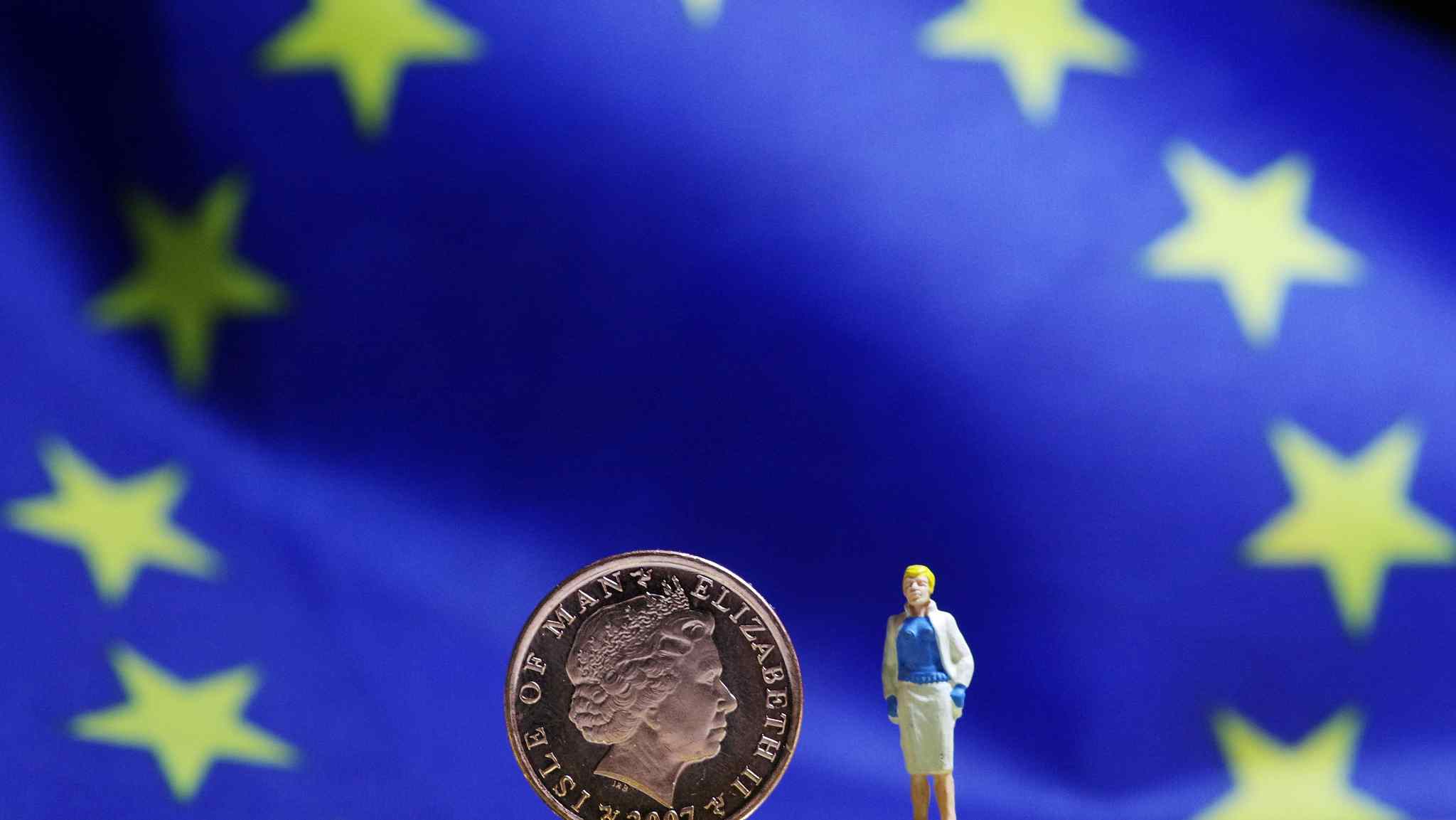
Opinions
22:35, 08-Oct-2018
Opinion: Britain cannot afford to follow America's economic warfare
Updated
22:19, 11-Oct-2018
By Tom Fowdy

Editor's note: Tom Fowdy is a UK-based political analyst. The article reflects the author's views, and not necessarily those of CGTN.
European Council (EC) President Donald Tusk said Saturday that a Brexit deal was possible by the end of this year, after EC chief Jean-Claude Juncker noted that the chance of a deal has greatly increased despite disagreement on a dose of issues.
With Brexit looming, Britain's fledging economy has to rely on upholding free trade and facilitating increasing economic ties with China. We cannot afford to passively follow Washington's lead uncritically.
“The special relationship” is a term that has been used to describe transatlantic ties between Britain and America since the end of World War II, and denotes a relationship built upon a common cultural heritage and “shared values” between the two countries. In reality, it has been one-dimensional and largely un-reciprocal.
More often than not, Britain has willingly submitted itself to Washington's demands and served as a loyal supporter of America's foreign policy around the world, including in highly controversial and costly military interventions. Despite this commitment, it has found itself simply ignored when it has tried to exert influence the other way.
The enormous unpopularity of Trump in Britain and widespread criticism of his foreign policy has not been enough to shift this mentality in 10 Downing Street, where Theresa May has been persistent in courting Trump in the face of a massive backlash.

Trump Baby balloon on Parliament Square as part of the anti-Trump demonstrations while the US President meets with the Queen of the UK at Windsor Castle. /VCG Photo
Trump Baby balloon on Parliament Square as part of the anti-Trump demonstrations while the US President meets with the Queen of the UK at Windsor Castle. /VCG Photo
However, as the US president intensifies his economic warfare around the world, it is becoming obvious that Britain's economic interests are intrinsically threatened by his actions.
As the US-China trade war intensifies, a new reality of UK-US relations is emerging that must be acknowledged: We can no longer afford to be a passenger to Washington's will.
Britain's economy is bleak. Growth forecasts have been continually downgraded under the uncertainty of Brexit, which has left it placed as one of the slowest growing economies in the G20.
The high-stake negotiations with the European Union hinge upon creating a deal which can uphold Britain's free trade with the bloc, even if it cannot replicate all the benefits of membership.
Simultaneously, the loss of wider EU international trade agreements demands that Britain head out into the world to obtain new ones.
Despite what one's position on Brexit may be, there is widespread acknowledgement that Britain's prosperity hinges upon securing and upholding free trade agreements.
As a small country with a highly globalized economy, the UK derives no perceived benefits from protectionism or tariffs. Apart from the most fanatical of Brexiters, there is a widespread fear that the dreaded “no deal” outcome may pose to destroy Britain's economy if nothing else is in place.
The practical reality is clear: Britain is very much reliant on maintaining open economic ties with the rest of the world.

A man on a bicycle with a European Union flag and a dog in the basket joins pet owners to take part in an anti-Brexit 'Wooferendum' rally in London, October 7, 2018. /VCG Photo
A man on a bicycle with a European Union flag and a dog in the basket joins pet owners to take part in an anti-Brexit 'Wooferendum' rally in London, October 7, 2018. /VCG Photo
Yet the perils of Brexit are faced with even more difficult headwinds. The United States has chosen to pursue a path of economic warfare with China in the name of “America First,” something which may pose even more fundamental risks to Britain's prosperity.
The evidence makes it clear that the United Kingdom profits immensely from stable ties with China. In 2017, the UK exported over 22.3 billion pounds (29.1 billion US dollars) in goods to China and held a trade surplus when measured in services alone.
Similarly, Chinese foreign direct investment into the UK amounted up to 20.8 billion US dollars in 2017. The premiership of David Cameron was an enthusiastic supporter of UK-China ties, with then Chancellor George Osbourne aspiring to turn Britain into “China's best partner in the West.” Without a doubt, they understood the benefits of such a relationship.
Thus, at a time of grave economic uncertainty, if Brexit does not work out, the additional damage Washington's actions could pose to Britain's interests is immense, especially if they aim to bully the UK into making it distance itself from China, as they will inevitably do to others.

September 11, 2008: 20 bankers, their backs turned to the window at the London office of Lehman Brothers as the firm slid towards collapse. /VCG Photo
September 11, 2008: 20 bankers, their backs turned to the window at the London office of Lehman Brothers as the firm slid towards collapse. /VCG Photo
As a result, although Britain has never pledged to join Trump's trade war, there is far too much at stake to even implicitly endorse it or turn a blind eye to it. Instead, Britain must be prepared to stand up to fight for its own interests in the face of rampant American unilateralism.
The Conservative government seem to believe that appeasing Trump will grant them a “post-Brexit trade deal” with Washington. But in the face of such protectionism, not only is such a deal highly unlikely, but it would serve to be grotesquely one-sided and come with the risk of our cherished National Health Service being carved up by American multinationals.
Instead, the government must awaken to the reality that our interests are increasingly different, not only normatively, but economically. Few Britons are keen on Trump. We thrive upon vast and diverse free trade; we thrive upon positive engagement with China. We can't afford to follow this dogma and we must be prepared to put rational economic incentives ahead of the sweeping Neo-McCarthyism emerging across the Atlantic.
(If you want to contribute and have specific expertise, please contact us at opinions@cgtn.com.)

SITEMAP
Copyright © 2018 CGTN. Beijing ICP prepared NO.16065310-3
Copyright © 2018 CGTN. Beijing ICP prepared NO.16065310-3